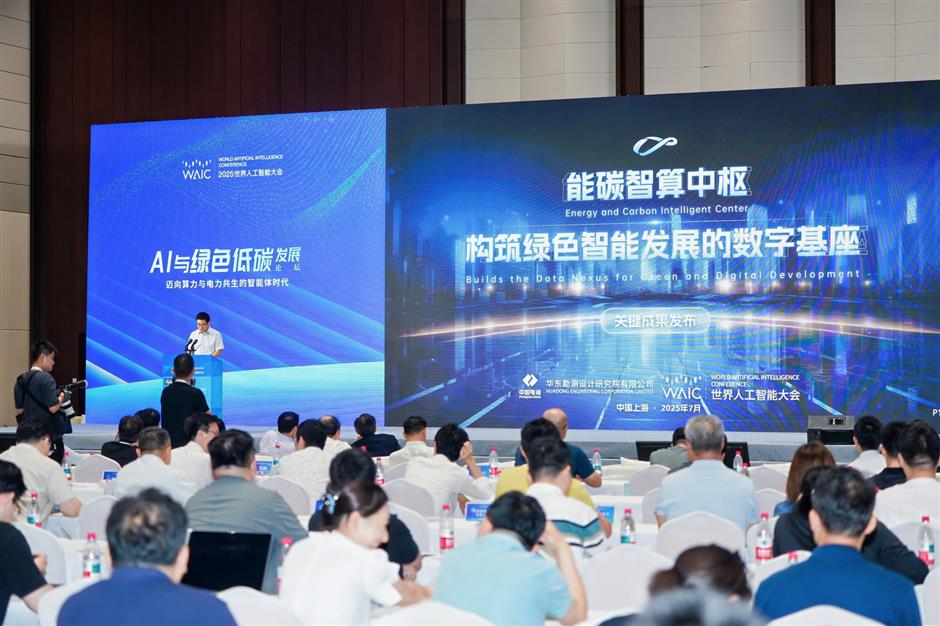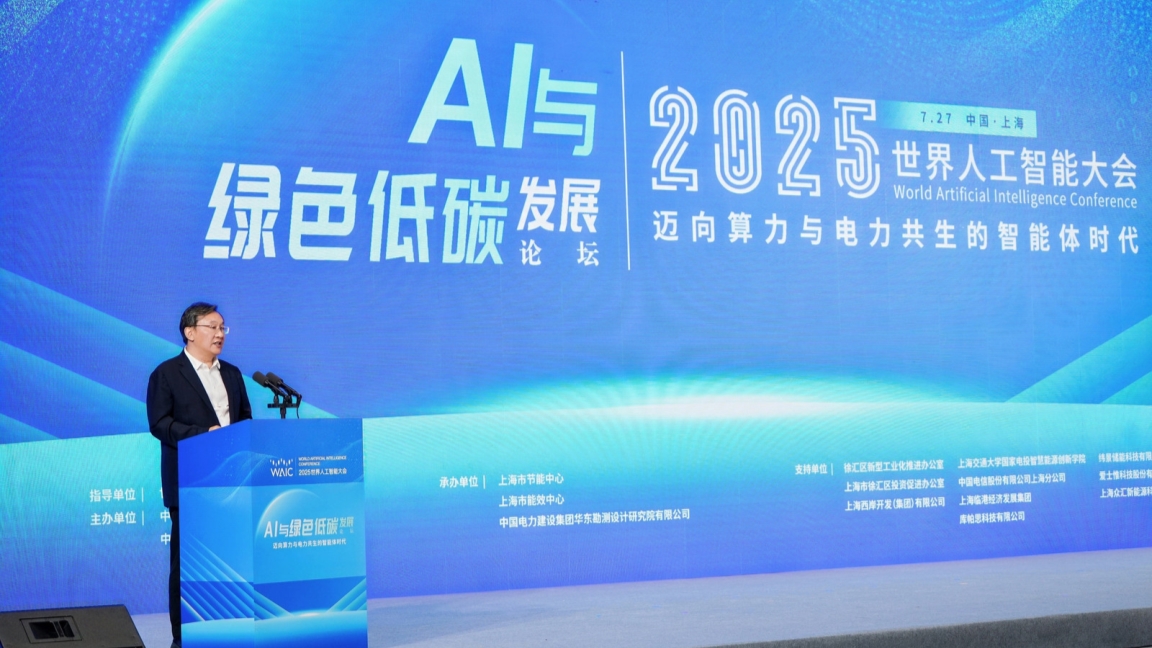
A key focus of the ongoing World Artificial Intelligence Conference (WAIC) is the "AI and Green Low-Carbon Development Forum" focusing on the escalating energy consumption driven by AI's exponential growth.
Businesses and institutions convened to explore sustainable development pathways for the global intelligent revolution.
He Kebin, an academician at the Chinese Academy of Engineering, underscored that the global economy is becoming increasingly reliant on energy technology.
He noted that while AI is emerging as a powerful tool for refined energy and carbon management, it will simultaneously impose "immense impacts" on energy systems.
Representatives from enterprises, including Shanghai Kupas, CITIC Securities, China Telecom, WeView Energy Storage and Shanghai Lingang Group, participated in the forum.
They examined how to construct a green foundation for the future digital economy, offering perspectives on energy supply, green intelligent computing infrastructure and efficient vertical domain models.
On the software and algorithm front, Kupas shared insights into optimizing algorithms from the source to train more efficient vertical domain models.
CITIC Securities presented how AI can drive green finance initiatives. Lingang Group detailed its practical applications within smart industrial park management.
A significant announcement came from Power Construction Corporation of China (POWERCHINA), which is building the world's largest hydroelectric dam project costing 1.2 trillion yuan (US$168 billion) in the Xizang Autonomous Region.
In the WAIC forum, it officially unveiled its "Energy and Carbon Intelligent Center." This initiative aims to create a "digital base" and "central system" for the future green intelligent economy, integrated flows of "energy, carbon and data."

Power Construction Corporation of China releases its "Energy and Carbon Intelligent Center" in WAIC 2025.

